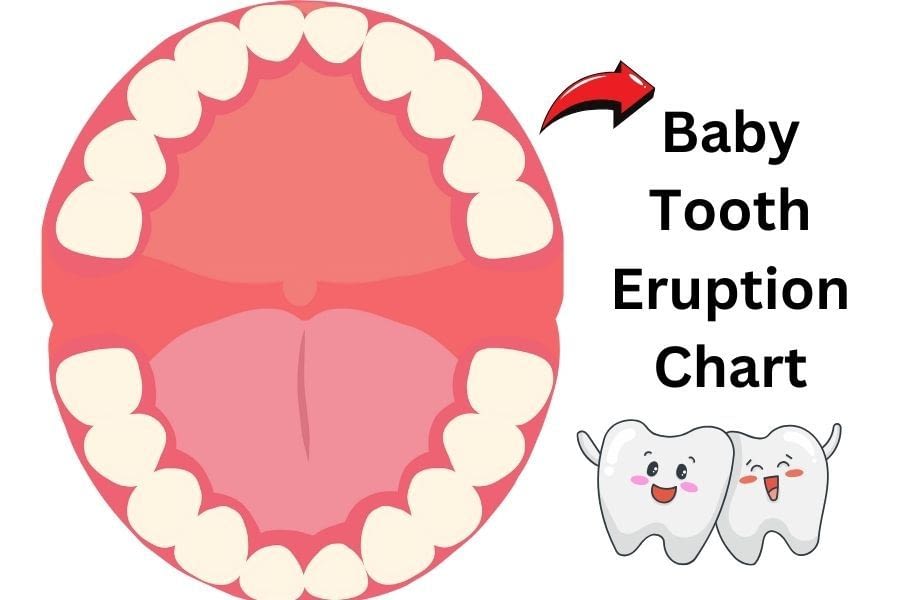As a parent, watching your little one hit their milestones can bring overwhelming joy and, sometimes, a pinch of worry. Particularly teething, that all-too-familiar babyhood hallmark, can come with its share of anticipation and concerns. But what happens when your baby’s teeth take their sweet time showing up? Some consider late teething sign of intelligence.
In this well-researched piece, I delve into the myths and science behind late teething and its possible correlation to child intelligence. So, dear parents, sit back as we embark on a toothy exploration of understanding your child’s development.
Understanding Late Teething
Teething, the process wherein a baby’s first teeth break through the gums, usually begins around six months. But let’s define ‘late’ in late teething. If your baby hasn’t sprouted their first tooth by their first birthday, this may be considered late tooth eruption, or as dentists call it, delayed teething.
Several factors may contribute to late teething, from genetics to nutritional aspects. Recognizing that a wide spectrum of normal exists regarding teething timelines is essential. Just like learning to walk or talk, the emergence of those pearly whites can vary significantly from one child to another.
Signs of Intelligence
The leap from the delinquency of a tooth to a testament of intelligence is fraught with myths and suppositions. Some studies suggest that late teething could hint at a longer maturation period, possibly resulting in stronger, healthier teeth. As for intelligence, historical beliefs, and anecdotal evidence have fueled this intriguing association.
Research has occasionally wandered down this path, postulating that the timing of developmental milestones could reflect on future cognitive abilities. However, correlation does not imply causation, and while it’s an area ripe for investigation, the cognitive development connection is still inconclusive.
Common Misconceptions about Late Teething Sign of Intelligence
The belief that developmental timing—including teething—reflects a child’s intellectual capability is a common misconception. Some think that because a child takes longer to reach a milestone, their body invests resources elsewhere, such as brain development. These assumptions are speculative at best, lacking robust scientific backing.
Other Factors to Consider
While watching teething timelines, remember that genetics play a pivotal role. Your family’s dental history might offer some clues. Furthermore, the canvas of overall development milestones gives a reliable picture of your child’s growth, not just the advent of their baby teeth.
Benefits of Late Teething
While delayed teething can be a source of concern for parents, it’s important to recognize the potential benefits accompanying this developmental timeline.
Late bloomers in dentition may have the advantage of extended preservation of tooth integrity, as teeth exposed to the oral environment for a shorter duration may be less susceptible to dental decay and erosion.
Additionally, the later arrival of baby teeth can sometimes mean a prolonged duration of natural breastfeeding, offering an extended period of its nutritional and immunological benefits.
It’s also suggested that when teeth emerge later than average, they do so in a more established and possibly healthier oral cavity, which could contribute positively to the proper alignment of teeth.
However, these advantages should be considered with cautious optimism; like much of pediatric development, individual variations make it challenging to generalize outcomes for all children.

Late Teething Reasons
While the precise reasons for late teething can vary, a closer examination reveals various genetic and environmental factors.
Genetic Factors
A major contributing element to late teething is the genetic makeup inherited from parents. For many children, their teething schedule mirrors their parents or grandparents.’ Although not entirely understood in its mechanism, this hereditary influence often dictates when a child will experience their first tooth eruption.
Nutritional Impact
Nutrition also plays an indispensable role in the developmental timeline of a child, including their dental aspects. Certain deficiencies, notably in vitamins and minerals such as Vitamin D, calcium, and phosphorus, can affect tooth eruption. Ensuring a balanced diet may contribute to keeping the teething timeline on track.
Hormonal Factors
Hormonal imbalances, particularly with the thyroid hormone, can influence development. Hypothyroidism in infants, though rare, can delay several developmental milestones, including teething.
Environmental and Health Conditions
General health issues and environmental factors must be accounted for as well. Infants with certain health conditions, or those born prematurely, may exhibit a variety of developmental delays. Also, external environmental factors, such as exposure to toxins or pollutants, can sometimes affect a baby’s growth rate.
Understanding the interplay of these factors is crucial for parents and pediatricians alike when assessing a child’s development trajectory. It’s also important to note that most instances of late teething do not point to a serious medical condition and are usually not a cause for alarm.
Syndromes Associated with Delayed Eruption of Teeth
Various syndromes and medical conditions can be linked to delayed tooth eruption, where primary or permanent teeth appear later than the typical developmental timeline. Teething Syndrome such as Down Syndrome, Cleidocranial Dysplasia, and Hypothyroidism are a few instances where delays in teething might be observed.
Down Syndrome
Delayed tooth eruption and other dental abnormalities, such as smaller teeth, are common in children with Down Syndrome. These dental anomalies are attributed to genetic variations in individuals with this syndrome and can impact both primary and permanent teeth.
Cleidocranial Dysplasia
A rare genetic disorder, Cleidocranial Dysplasia, directly impacts the development of bones and teeth. One of the characteristic dental issues for people with this condition istooth eruption delay , the abnormal eruption of permanent teeth that may lead to dental crowding, and the presence of supernumerary teeth.
Hypothyroidism
Hypothyroidism can lead to delayed tooth eruption in children, as thyroid hormones are crucial for growth and development. Hypothyroidism slows down the metabolic processes, consequently affecting oral health and delaying teeth eruption, among other developmental issues.
Delayed teething because of these syndromes often necessitates comprehensive medical and dental care. Such conditions must be managed with the guidance of a pediatrician and a pediatric dentist to ensure the best overall health outcomes for the child.
Understanding these medical correlations is vital for parents and pediatricians in discerning the cause of delayed tooth eruption. Monitoring children with these conditions closely and providing specialized care can help mitigate potential oral health problems associated with delayed teething.
Home Remedies for Late Teething
While late teething is normally not a significant concern and doesn’t typically require medical treatment, parents can take various home remedies and practical steps to support their child through this stage.
Gentle Gum Massage
A simple and effective remedy is gently massage your baby’s gums with clean fingers. This can help soothe discomfort and stimulate the gums, potentially aiding the teething process. Always wash your hands thoroughly before doing so.
Cooling Relief
Applying cold can provide soothing relief to tender gums. Parents can chill a teething ring in the refrigerator or offer their baby a cold, wet washcloth to chew on. Avoid freezing teething rings, as extreme cold can be harmful.
Safe Chewing Options
Offer your child a variety of safe, chewable objects. Teething toys made of BPA-free silicone can be particularly beneficial. These allow the child to apply pressure on their gums at their own pace and comfort level.
Adequate Nutrition
Ensuring your baby receives all the necessary nutrients will support overall development, including teething. Breast milk or formula provides most nutrients in the first year, complemented by age-appropriate solid foods.
Herbal Remedies
Some herbal remedies are believed to comfort teething babies. For example, chamomile tea, known for its soothing properties, can be rubbed on the gums or given in small, cooled doses for the child to drink. Always consult with a pediatrician before using herbal remedies.
Avoid Gels and Tablets
While some topical gels and teething tablets are marketed for teething babies, it’s important to use caution. The FDA advises against using homeopathic teething tablets and gels due to potential risks. Always consult your child’s doctor before using any over-the-counter remedies.
Maintain Oral Hygiene
Keeping the baby’s mouth clean and healthy and teeth pop through. Regularly wipe your baby’s gums with a soft, damp cloth, even before the teeth come in.
Keep Up with Pediatric Checkups
Regular visits to the pediatrician can help you track your child’s development and catch any potential issues early on. Your pediatrician can provide guidance and reassurance if you’re concerned about your child’s teething schedule.
It’s important to understand that while these remedies may offer comfort, they are not guaranteed to speed up the teething process. Each child’s development is unique, and unless there are signs of more serious health issues, late teething typically doesn’t require intervention.
When to Worry About Baby Teeth Not Coming In?
While it’s common for parents to feel anxious when their child does not follow the standard teething timeline, it’s beneficial to understand that variations occur. If you find yourself concerned about ‘no teething at 9 months’, it’s noteworthy that some infants may not show any teeth until later. For those with ‘no teeth at 8 months old’, rest assured it is still within normal development, and the same holds for ‘no teething at 10 months’.
Parents may also question, ‘why my 11 month old doesn’t have teeth?’ – while unusual, it is rarely a standalone sign of a significant problem. However, if at ‘1 year old, no teeth and not walking’ occurs simultaneously, it is a scenario that may require further investigation. This combination could indicate that the child’s broader developmental milestones are being affected, and professional advice would be prudent.
As parents monitor the progress of their baby’s teething, certain signs may warrant special attention. It’s essential to remain vigilant if an infant reaches the age of 16 months without any teeth. While variations are standard, this could indicate the need for further evaluation. Concern should also arise if teething patterns are markedly asymmetrical, as baby teeth typically erupt in pairs.
Another red flag is when a significant departure from expected growth patterns, including ages for teething, aligns with delays in other developmental milestones, such as crawling, walking, or talking.
Moreover, parents should be cautious if the gums appear swollen for an extended period or if cysts form around the area where a tooth should emerge. Should any of these concerns come to light, it’s advisable to consult with your pediatrician.
Conclusion: Late teething sign of intelligence
Parents, it’s natural to ponder every facet of your child’s growth, including whether late teething is a sign of intelligence. Although it’s a compelling thought, science asks us to practice patience and caution in drawing such conclusions. Each child’s journey is unique—embrace, support, and celebrate each new tooth as a testament to your child’s unique pace.
Remember, your child’s first set of teeth will be one of the many milestones they reach. Whether they are early or late doesn’t predestine their future capabilities. Nurturing, a stimulating environment, and, most importantly, your love and encouragement are the genuine cornerstones of their intellectual and overall development.
3 Tips to Remember:
- Normal Variation: The teething timeline varies greatly among children. Late teething, by itself, doesn’t indicate intelligence or developmental issues.
- Overall Picture: Focus on the broader development milestones rather than fixating on individual timelines.
- Seek Guidance: Consult your pediatrician for advice tailored to your child’s needs when in doubt.
1 Visit today





